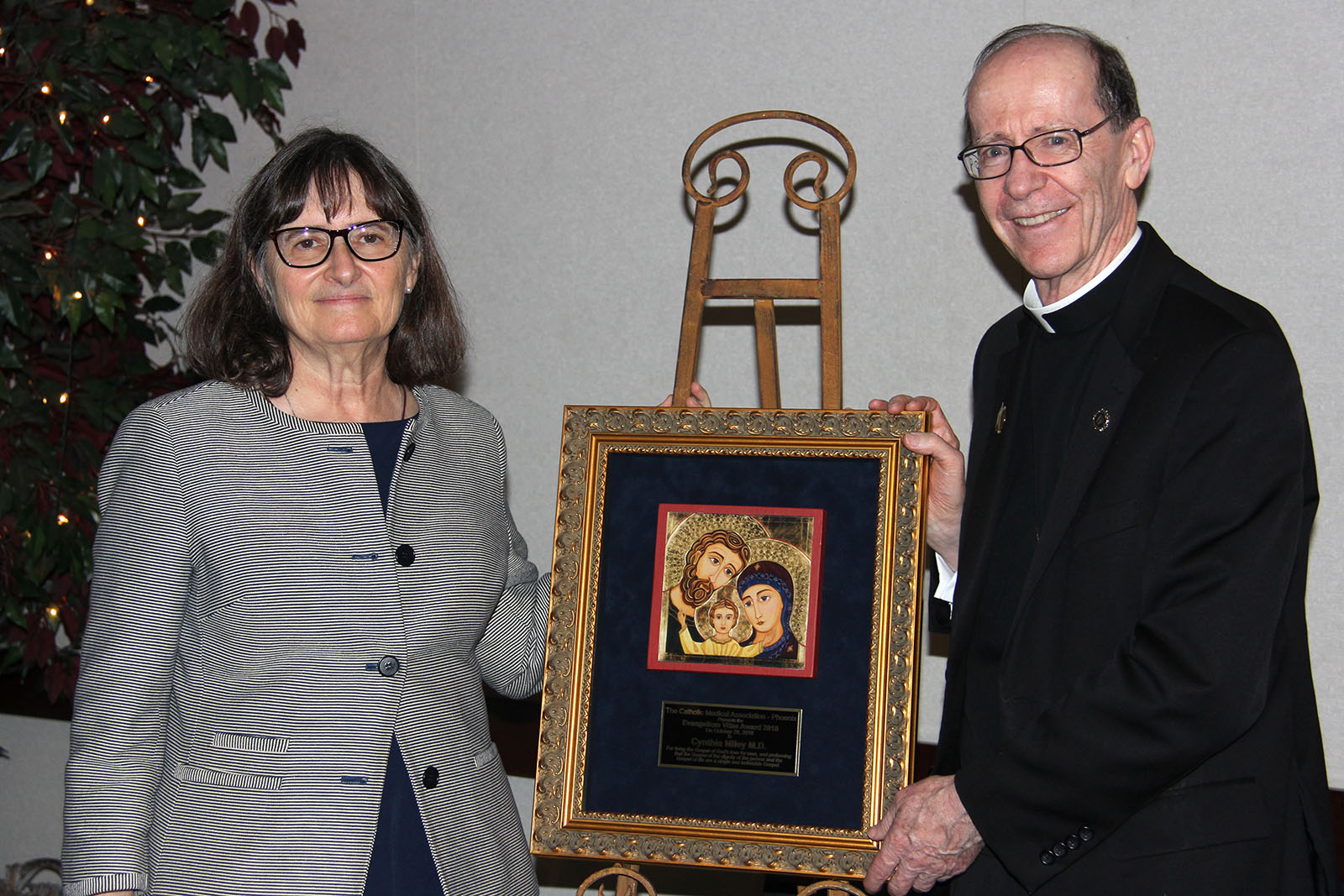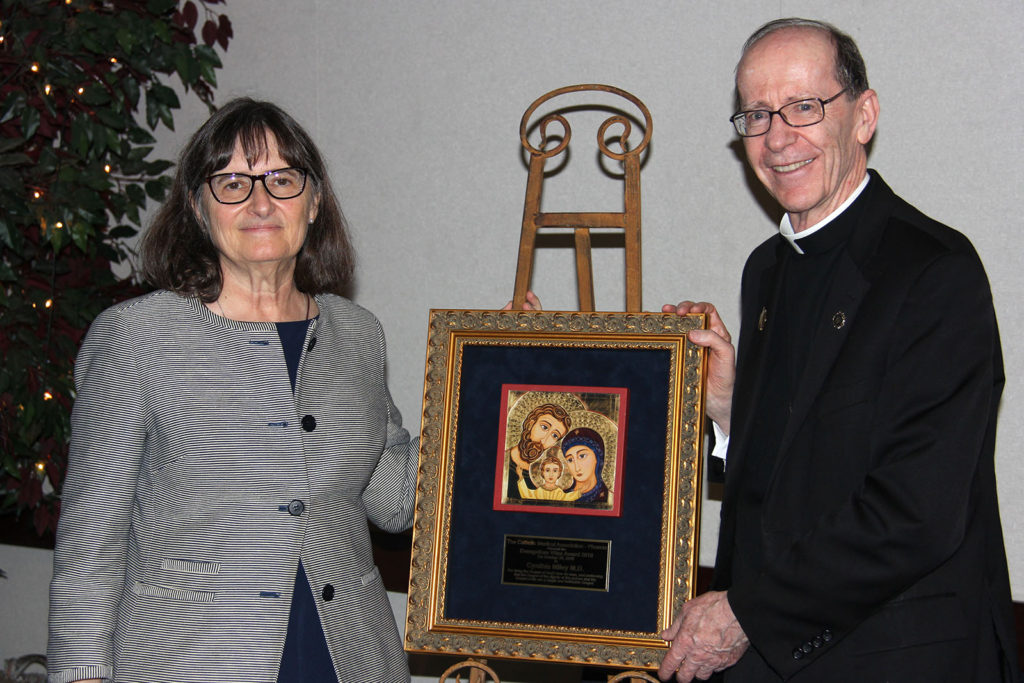
Catholic medical professionals and their friends were strengthened in their role as stewards of their patients’ health during the annual White Mass and dinner Oct. 21 that focused on the intellectual contributions of St. John Paul II and the service of two local servants of the Gospel of Life.
Organized by the Catholic Medical Association Phoenix, the evening started with a Mass at the Diocese of Phoenix Pastoral Center celebrated by Bishop Thomas J. Olmsted, followed by a presentation from Fr. Peter Short, vicar general for the Diocese of Gallup, New Mexico.
Cindy Leonard, coordinator for the Diocese of Phoenix Office of Natural Family Planning (NFP), received the association’s St. Luke’s award and Dr. Cynthia Miley received its “Evangelium Vitae” award.
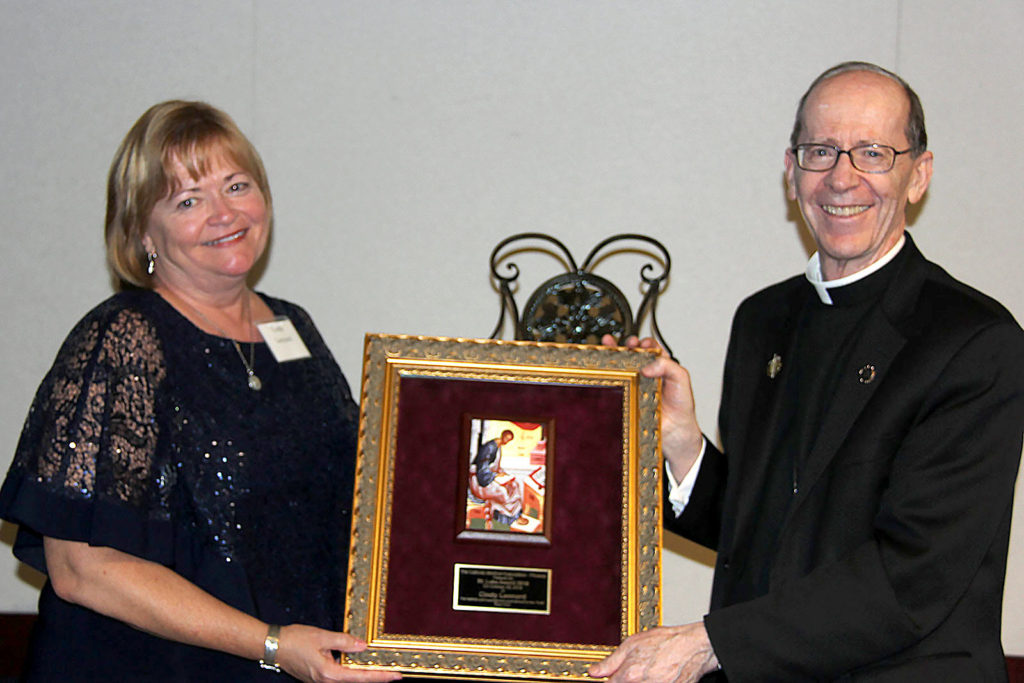
Celebrating 40 years of marriage and five children, Leonard has taught NFP for more than 38 years and has been on an advisory board for the U.S. Conference of Catholic Bishops. Since 2007, Leonard has headed the office of NFP for the diocese.
After receiving her award, Miley said she was “truly humbled and honored by this event” and thanked “the Lord Jesus Christ for dying for us, repaying the debt that we could not pay ourselves.”
Miley then recounted the circumstances that led to her recognition. She had a 76-year-old “articulate,” patient who had filled out a living will. The man wanted medical treatment unless he was deemed terminal or in a vegetative state. After experiencing an infection that had the potential to be fatal, the man’s family placed him in a hospice care nursing home facility with no treatment of the infection. When the family was around, they would speak of the man joining his wife who had passed earlier, but when the family was not around, the patient requested treatment for the infection. The decision not to treat was accepted by the medical director and hospice physician.
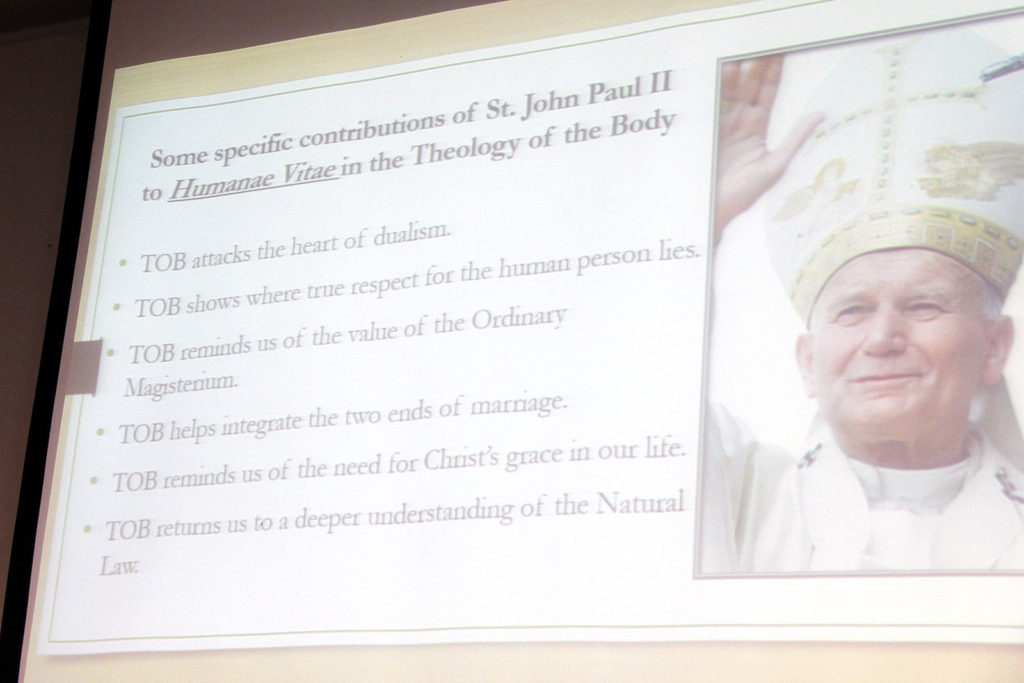
But Miley found issue with this, sought legal advice and filed a court order to have the living will honored. The judge ruled that the man should receive treatment and he eventually went to an assisted living facility where he lives today.
“Even if I were to lose my employment, which I did, I had to love, protect and care for him,” Miley said on the ramifications of her actions.
She said she took the consequences well and that the Lord had new plans for her. Miley ended her address with a quote from St. John Paul II’s encyclical “Evangelium Vitae”:
“The blood of Christ, while it reveals the Father’s love shows how precious man is in God’s eyes and how priceless the value of life.”
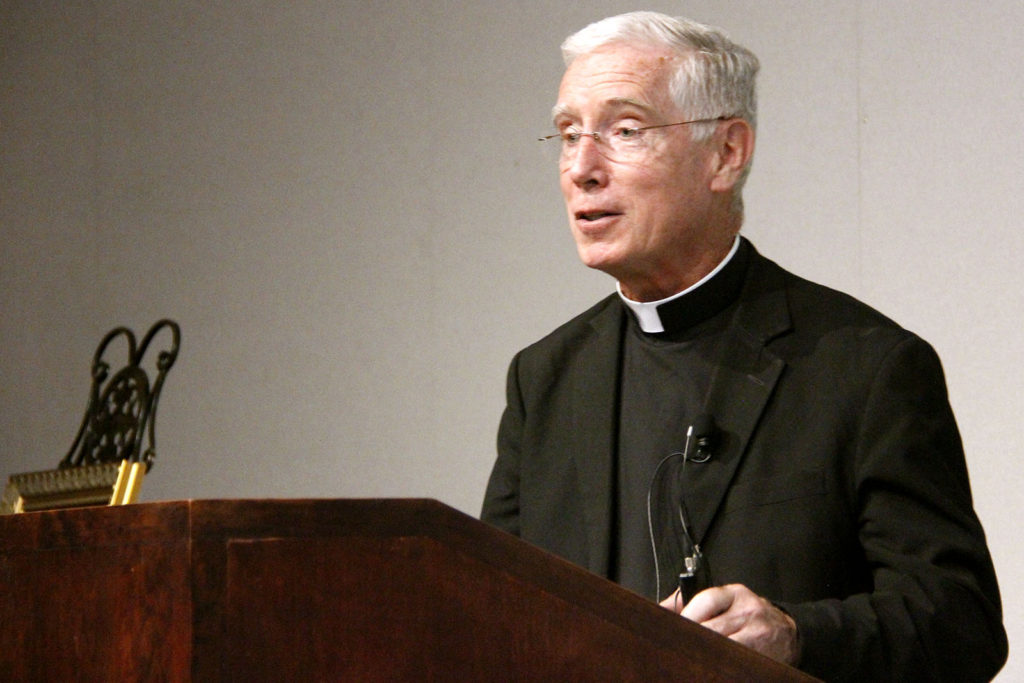
In his keynote address, “The Relationship of ‘Humanae Vitae’ to the Theology of the Body,” Fr. Short recounted milestones in the life of Karol Wojtyła — who would become Pope John Paul II — regarding his work in holding up the dignity of love, marriage and life.
Fr. Short listed a number of then Cardinal Wojtyła’s anthropological thoughts that influenced the encyclical “Humanae Vitae” released on July 25, 1968 by Pope St. Paul VI. Among a variety of life topics, the encyclical is famous for its upholding of the Church’s prohibition on contraception.
“So, we see that, in the 10 years following the release of the encyclical before becoming pope, Wojtyła worked strenuously to defend, explain and put into practice the teaching of ‘Humanae Vitae,’” he recounted.



